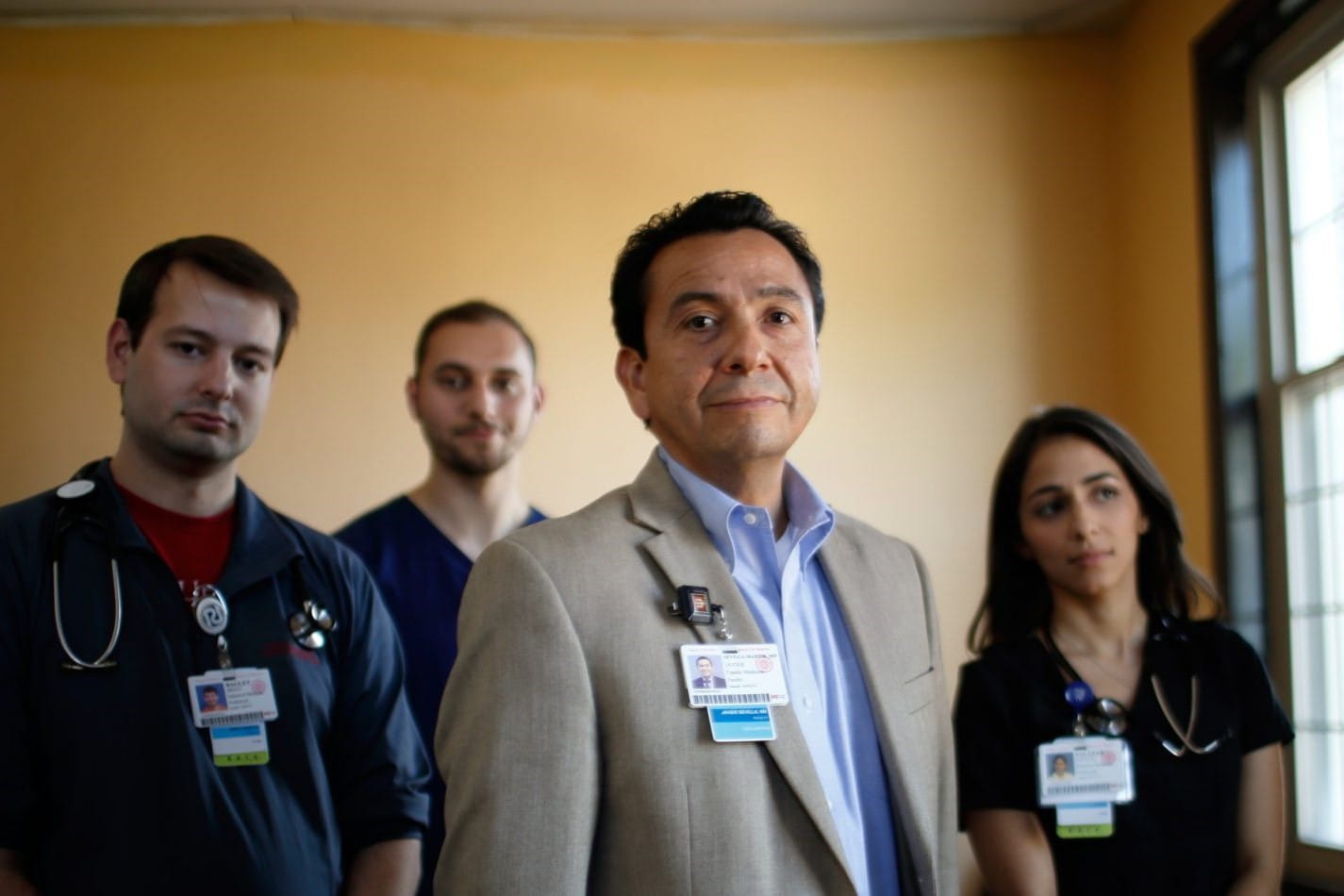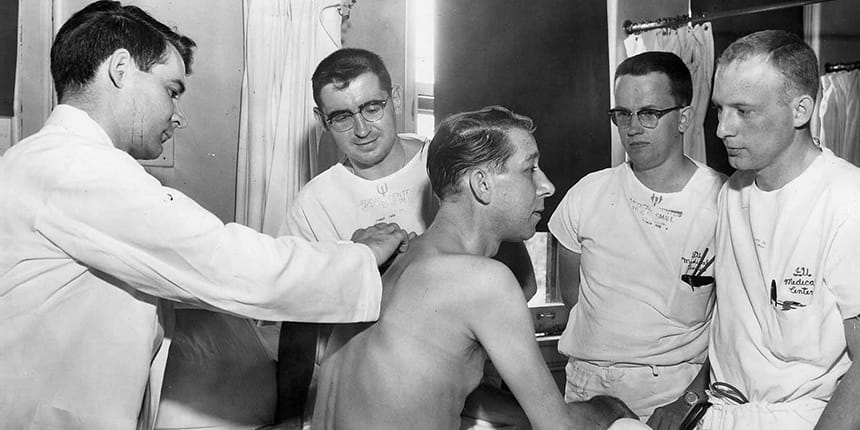With nearly 2,000 full-time faculty and the support of more than 3,000 volunteer faculty throughout Indiana, all teaching the physicians of tomorrow, IU School of Medicine is uniquely equipped to prepare the next generation of healers and transform health and wellness throughout the United States and beyond.
Preparing Healers. Transforming Health.

Fostering Excellence in Support of our Mission
At IU School of Medicine, we are committed to creating an environment where all members of our academic community — faculty, staff and learners — can excel. We are unified by our mission to improve the health of all Hoosiers, through excellence in education, research and clinical care.
All events, programs, groups, activities, educational, cultural and historical observances are open to all members of the Indiana University community.
Our work and our decisions are guided by that mission, our values and the enduring principles of the Hippocratic Oath. By upholding these values, we foster a culture of mutual respect, collaboration, and academic rigor — ensuring that excellence remains at the heart of everything we do.
Get to know the IU School of Medicine
IU School of Medicine is a statewide school that is educating future physicians and conducting advanced medical research throughout Indiana. To help the school’s future students, faculty, partners and donors understand what it’s really like to work and learn in this collaborative environment — and stay current on the progress of the School’s initiatives, a variety of information resources are available. Explore the newsroom and the research blog, where investigators throughout the school’s academic departments post updates about their work. To hear faculty researchers describe their work in person, find seminars, scientific presentations and other live events on the IU School of Medicine calendar.
News and Stories
Exceptional education. Research breakthroughs. Collaboration that sparks creativity and innovation in health care.
Explore the work at Indiana University School of Medicine that's transforming health in Indiana and beyond.
